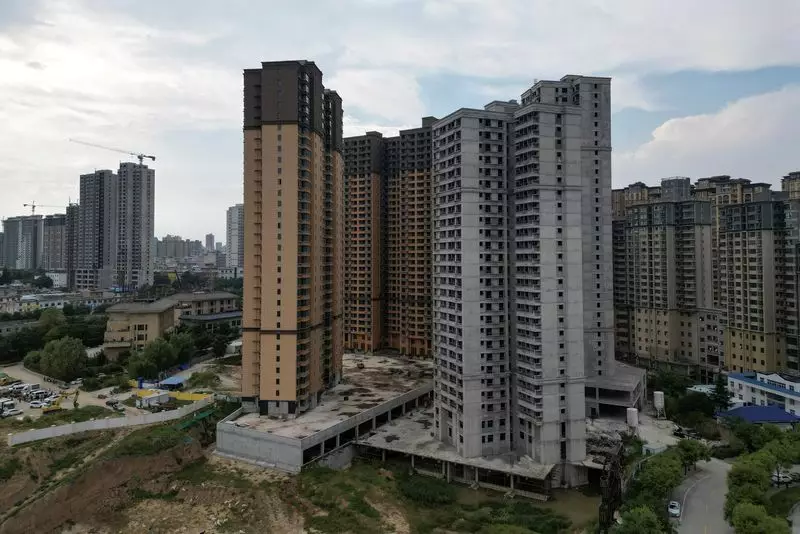In May, new home prices in China experienced a slight increase for the ninth consecutive month, according to a private survey. The average new home price across 100 cities rose by 0.25% on a monthly basis in May, following a 0.27% gain in April. This upward trend can be attributed to the various supportive steps taken to bolster the crisis-hit property sector in the country.
China’s property sector, which serves as a pillar of the economy, has faced significant challenges since 2021. A regulatory crackdown on high leverage among developers has led to a liquidity crisis in the sector, causing turmoil and instability. As a result, the government has been grappling with how to stimulate home sales and increase liquidity to restore stability and confidence in the market.
In an effort to stabilize the property sector, China introduced a series of “historic” steps in mid-May. These measures included easing mortgage rules and providing an additional 1 trillion yuan ($140 billion) in funding. Furthermore, local governments committed to purchasing apartments to stimulate demand and prevent further declines in prices. These interventions were aimed at boosting homebuyer demand and mitigating the negative impact of the liquidity crisis.
Investors were hopeful that the government’s decisive actions would signal a turning point for the property sector. By implementing supportive measures and injecting liquidity into the market, authorities sought to address the underlying issues that have plagued the sector in recent years. The willingness of the government to intervene and provide necessary support reflects a commitment to restoring stability and confidence in the property market.
Moving forward, the effectiveness of the government’s measures in stabilizing the property sector remains to be seen. While the initial response from the market was positive, sustained growth and stability will depend on the continued implementation of supportive policies. The government’s ability to strike a balance between stimulating demand and preventing excessive speculation will be crucial in shaping the future trajectory of the property sector in China.


Leave a Reply